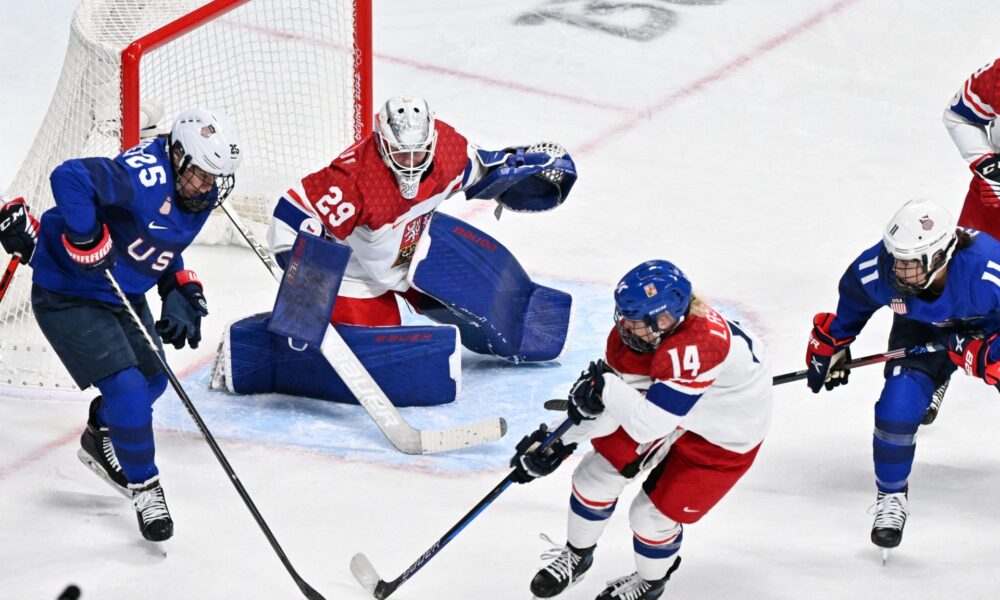On Sunday, Feb. 6, an article titled “Why women’s hockey doesn’t belong in the Olympics” was published—and no, it was not by the Onion. A columnist at the Toronto Star berated women’s hockey, arguing that because Canada and the United States dominate the sport at the Olympic level, the women’s team simply does not deserve to play. The columnist further insulted the sport, calling Olympic women’s hockey another form of “affirmative action” and a “cheap medal.”
What are the Olympics for, if not to put the talents of the most skilled athletes in the world on display? The speed and calibre of the women’s game is the best it has ever been, with achievements extending well beyond those of the North American teams. This is why women’s hockey deserves to be broadcast on the world stage. A team’s purported skill differential is not a reason to dismiss every player’s dedication to the game.
Jenni Hiirikoski, a 34-year-old Finnish defenceman, was ranked as a top-three generational player by the Athletic. As a member of the national team for 20 years and the captain for the last 10, Hiirikoski has averaged more than 25 minutes a game throughout her international career and has appeared in 75 world championship games—more than any other women’s player.
Alina Müller, a 23-year-old forward for Switzerland, is at her third Olympics in Beijing this year, with two Patty Kazmaier nominations to her name after lighting it up with the Northeastern Huskies since 2018.
Klára Peslarová, the 25-year-old goalie for Czechia, put on an outstanding performance in the Olympic quarter-final against the United States this year, making 56 saves on 59 shots. How could the world not want to watch that?
On the McGill women’s hockey team, the Olympics are a huge motivating factor for highly skilled players. The Martlets’ associate coach, Katia Clément-Heydra, emphasized the importance of the Olympics as an attainable goal.
“If you look at TSN, there’s no women’s sports at night,” Clément-Heydra said in an interview with The McGill Tribune. “Having that recognition [at the Olympics] brings our value up. We’re sold short, because no one knows about us. No one recognizes us as being elite because we’re women.”
Clément-Heydra also stressed the lack of professional opportunities for women’s hockey.
“We have some graduating players that are close to the top elite athletes of the country, but there are not a lot of places for the girls to play [professionally] right now, unless it’s going overseas,” Clément-Heydra said. “I see so many girls that are so good at hockey retire after university, just because they’re not in a city where there is a [professional] team. It’s really important to have the Olympics, but the next piece would be more investment in women’s professional hockey.”
A peak audience of 1.3 million people watched the Canada vs. U.S. women’s hockey game on Feb. 7, drawing CBC’s largest late night audience so far this Olympics.
Inconsistent and inadequate television coverage of women’s hockey at the professional and collegiate levels across North America has resulted in the Olympics being the single moment of exposure for many fans. The Olympics remain one of the only opportunities for many to discover international stars and watch hometown favourites such as Mélodie Daoust, a McGill graduate.
“The product is there,” Clément-Heydra said. “The girls are really good. It’s TV [that] people are going to watch.”
Currently, two professional women’s leagues exist in North America: The Premier Hockey Federation (PHF), formerly known as the National Women’s Hockey League, and the Professional Women’s Hockey Players Association (PWHPA), which is a hybrid between a league and players union. The two leagues remain divided in their abilities and demands, with the PHF being unwilling, or unable, to provide players with the necessary health benefits, living salary, and professional hockey infrastructure the PWHPA is demanding. The NHL’s statement that they would only support a united women’s league in combination with the PHF’s deal with ESPN+ has created an incentive for the two to come to an agreement.
Until there is a cohesive professional league, the Olympics is a vital event to the continued growth of the women’s game. It’s beyond time to drop the age-old, sexist debate over whether or not women’s hockey belongs, and focus on enjoying the incredible display of skill at the 2022 Olympics.









